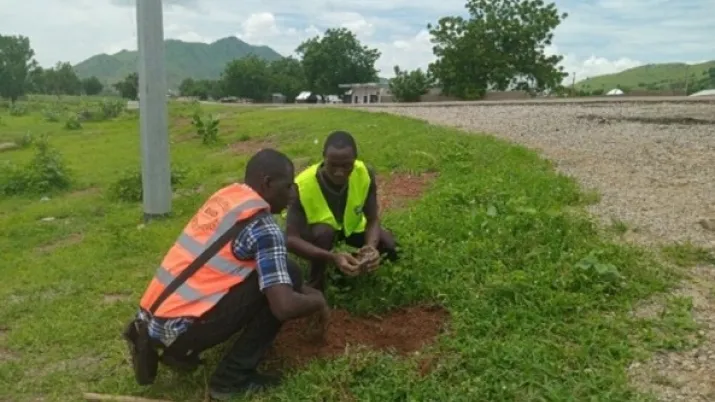Share the page
The 185 member countries gathered for the GEF Assembly adopt two key agreements to protect biodiversity worldwide
Published on

Representatives from 185 countries gathered in Vancouver, Canada for the Seventh Assembly of the Global Environment Facility (GEF) from 22 to 26 August 2023. Marking a globally significant event, the Assembly provided an arena to assess progress on the 2030 goals aimed at ending pollution and biodiversity loss, combating climate change and promoting inclusive, locally-led conservation.
The GEF Assembly is a major event, at which every four years the 185 member countries come together to review progress, discuss policy, coordinate actions and set priorities for environmental financing. It also represents a powerful symbol of global unity, by bringing together governments, civil society, the private sector and local communities.
As temperatures hit new records and wildfires rage out of control, amid increased flooding and alarming and ever-worsening indicators of biodiversity loss, this Seventh Assembly of the GEF - held in Vancouver from 22 to 26 August - took on even greater significance as it highlighted the environmental issues we face today. It centred around the official launch of the Global Biodiversity Framework Fund, an initiative made possible by ratification of the agreements reached at COP15 in Montreal in December 2022 and successfully approved by the GEF Council at its meeting in Brasilia in June 2023. The Global Biodiversity Framework Fund aims to support and accelerate action for the protection and sustainable use of the environment, placing particular focus on indigenous communities through recognition of their vital role in biodiversity conservation. Launch of the Fund, which is managed by the GEF, comes as the GEF prepares to expand its remit to become an integral part of the financial mechanism supporting the historic treaty on the conservation and sustainable use of marine biodiversity in areas beyond national jurisdiction, known as the BBNJ or the High Seas Treaty.
This role of financing the Global Biodiversity Framework and the BBNJ will expand the scope of the GEF beyond its current mission of supporting international action on climate change, land degradation, toxic pollutants and mercury. The GEF is a large-scale fund founded in 1991, which is dedicated to confronting biodiversity loss, climate change, pollution, and strains on land and ocean health. Its grants, blended financing, and policy support helps developing countries to address their biggest environmental priorities and adhere to international environmental conventions. Over the past three decades, the GEF has provided more than $23 billion and mobilised $129 billion in co-financing for more than 5,000 national and regional projects.
The Seventh Assembly of the GEF highlighted France’s commitment to global efforts to protect the environment. As signatory to the new Global Biodiversity Framework, France is a powerful driver of this international dynamic through the French Facility for Global Environment (FFEM). The FFEM lends its expertise and support to innovative projects promoting sustainable development in developing countries. Through its contribution to the goals of international conventions on the environment, the FFEM gives France a louder voice in international discussion on environmental protection.
Stéphanie Bouziges-Eschmann, Secretary-General of the FFEM, led the French delegation in Vancouver, accompanied by representatives from the Ministry of the Economy and the Ministry of Foreign Affairs.
The alliance between the FFEM and GEF is based on a shared understanding of environmental challenges and a common view of the critical importance of protecting the planet and its inhabitants through integrated approaches that provide a cross-cutting response to all environmental issues. Joint investments by the FFEM and GEF have taken various forms, including strengthening national schemes for protected areas in Madagascar and Uruguay, enhancing national forest monitoring capability in Central and West Africa, introducing a trust fund to support protected areas in Guinea-Bissau and the Mediterranean, promoting agroecology in arid regions, and tackling plastic waste in Guatemala and electrical and electronic waste in Cameroon.
This collaboration between the two entities, which goes back to the creation of the FFEM, has enabled 60 innovative projects to be financed and implemented around the world, going beyond simple financial contribution to leverage their complementary expertise and levels of intervention. By pooling their efforts, the FFEM and GEF can together support a theory of change able to respond to complex environmental issues. The FFEM can contribute to GEF projects through its assembly of key actors, including experts, non-governmental organisations and research institutions. Further, the FFEM can facilitate synergy with investments by the French Development Agency (AFD).
, explains Dr Claude Gascon, Manager of Programs at the GEF.



